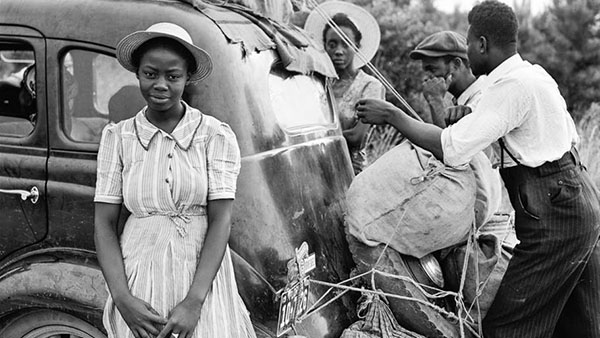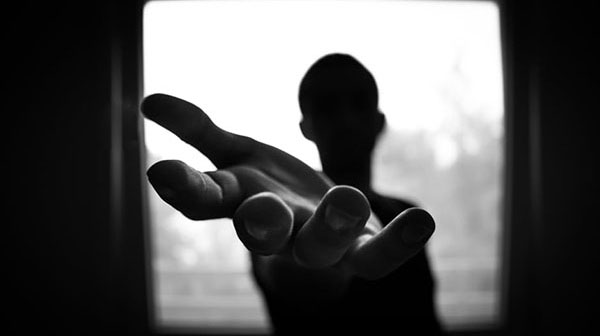By Yvonne Sam
PRIDE Columnist
 Here we go again, with the least intention of ruffling any feathers or appearing like a snake oil saleswoman. Black History month has just gone by, amidst the perpetual disgruntlement of it being the shortest month in the year, yada! yada! yada!
Here we go again, with the least intention of ruffling any feathers or appearing like a snake oil saleswoman. Black History month has just gone by, amidst the perpetual disgruntlement of it being the shortest month in the year, yada! yada! yada!
While we continue to celebrate Black History Month every February, there are countless Black people who could care less about being reminded of the contributions that Black people have made in Canada, or even America.
Believe me if there is any group who should care about the contributions, efforts and concerns of Black people, it should be…well… let’s face it…Black people!
It truly saddens me at just how disconnected we are as a collective group of people; almost as if we are vagrants, with no true place to lay our collective heads. I truly mean this. It is as if we do not even know one another as a people. Think about it for a moment.
For example, have you ever been to the mall or out to a restaurant and recognize someone that you have encountered before, and approached them to speak, only to have them utter those horrible words, “I am sorry, but do I know you?”
There you are trying your utmost to remember how you may know the person or where you knew the person from, but somehow it just fails to register with you. You find yourself shaking your head and shrugging your shoulders trying to recall, but you are unable to put two and two together. Ever been there?
Or another scenario: perhaps you found yourself on the opposite end of the spectrum, where you were the one who did not remember or recognize the other person who came up to you, and although they tried their best to get you to remember along with them, you just could not recall how you may have known them.
Whatever the case may be, it is certainly an uncomfortable feeling.
The foundational premise behind each scenario is simply this – you and that other individual clearly may have had some sort of connectable “history” with one another, whether it was brief and/or limited, but you just cannot remember.
The historical experiences and the relationships you may have forged with the person can never be ignored or denied, and it does not alter the fact it took place. You just can’t remember. It’s that plain and simple.
Many of us have been to, or still attend, family reunions or high school class reunions. Now for a more honest look. You may recognize and remember some of your family members or some of your classmates at the reunion, but some of them you cannot remember at all and you probably have never even met them before.
 But listen for a moment…although you may not remember your family members or your classmates, and although you possibly have never met some of your family members or classmates before, it in no way negates the fact that those people in attendance, are still your family members or classmates.
But listen for a moment…although you may not remember your family members or your classmates, and although you possibly have never met some of your family members or classmates before, it in no way negates the fact that those people in attendance, are still your family members or classmates.
I continue to stand amazed at the many people who were, all-of-a-sudden, shell-shocked after witnessing what took place in America after Donald trumped Hilary and was elected president, and the blatant display of racism that still continues.
While I am happy to see that so many of them are finally waking up to reality, I have to be honest about how overwhelmingly surprised, especially of late, I have been with the number of Black people who still believe that in Canada we are living in a post-racial society. Reality Check 101!
More alarming to me has been the response by many Blacks, who still believe that learning about their real African history, and the contributions of our Black predecessors, are not important or relevant in the times we are now living.
Despite the fact that Black History in Canada, (believe it or not) consists of countless atrocities and negative circumstances, it also consists of so many great and outstanding things that have helped shape and transform Canada into the great nation it has become.
Recently one of my Black friends told me, in a seemingly nonchalant manner, that she was cool with Black History Month, but didn’t believe teaching her child about slavery and the atrocities suffered by people of African descent in this country was important or necessary.
After regaining my composure and completing my mental numeration, I uttered in sotto voce, “try telling a Jewish child to forget about the Holocaust and to get past it”. Best of luck with that.
Do not misunderstand me, I am all for being progressive in thought and action, but I also realize that if you don’t know your history, you are destined to repeat it.
After hearing my friend’s remarks, it brought me to the realization that Black people are, collectively, one of, if not the only, racial group who have completely been detached from their heritage and true history.
We have been conditioned that we are just “Blacks” and that our heritage and foundational roots are not that important. That was stripped from us and we have yet to collectively recover from it, to the point of understanding how damaging it has been to us as a people.
Take for example the newly arrived Muslim immigrants and any other racial demographic in Canada, you will find that they openly embrace their foundational culture, and they religiously teach their children to do the same.
The truth be told, Black people having been stripped of their true identity and, for centuries, have been adopting Western culture as if it was their own. We have an origin. We have a birthright. We have a beginning, and it did not start here in the Canada we now live in.
Do we even care to know who we are and where we come from in order to teach our children about themselves?
Do you even care to know who I am, my Black brother and Black sister? I want to know you!
Black History is important, and if we don’t learn to embrace our Black history, we will be destined to repeat it. Listen Black people…we need to stop treating each other like strangers.
Moving forward, I don’t want any of us to have to walk up to one another on the street, or in our respective communities, and have to ask each other the proverbial question: “I’m sorry, do I know you?”
Yvonne Sam, a retired Head Nurse and Secondary School Teacher, is Vice-president of the Guyana Cultural Association of Montreal. A regular columnist for over two decades with the Montreal Community Contact, her insightful and incursive articles on topics ranging from politics, human rights and immigration, to education and parenting have also appeared in the Huffington Post, Montreal Gazette, XPressbogg and Guyanese OnLine. She is also the recipient of the Governor General of Canada Caring Canadian Citizen Award.
 Pride News Canada's Leader In African Canadian & Caribbean News, Views & Lifestyle
Pride News Canada's Leader In African Canadian & Caribbean News, Views & Lifestyle





